1. Do I have too much debt?
The simple way to answer this question is to look at your credit card, or credit cards if you have more than one. Simply speaking, if you’re not paying off your credit card and clearing the debt back to zero each and every month then sorry, but you have too much debt.
Credit cards should only be used very sparingly and as a means of financial convenience, NOT a means of getting an easy loan from the bank or other financial institution. They are just way toooo expensive when it comes to interest rates and can be the absolute worse financial mistake you can make if you’re not careful.
Banks throw credit cards at people like frizz-bees and it’s very easy to use the credit that’s given to you but stop and take a good hard look and so no more.
Before you do anything else, you may want to pay off the existing balance on your card (or cards) and get back to using them for your benefit, not the banks benefit.
2. Do I have enough set aside for an emergency?
A good benchmark for the minimum amount of money to set aside in liquid reserves is about 6 months of living expenses. This way if anything does happen such as a disability or extended illness etc. then this will cover your expenses until disability insurance kicks in (assuming you have some that is?)
Now, if you’re self-employed, the benchmark here is about 12 months of living expenses due to the higher risk of an economic disaster happening.
3. Am I (and my family) financially protected?
Leading on from the previous question about emergency funds, it’s paramount for almost everyone these days to have in place risk insurance cover to protect against loss of income, disability, trauma events and of course, death. As I’m always saying in my job as a financial planner/risk consultant, absolutely no one is bulletproof and if you’ve been one of those very fortunate few who have (so far) escaped some type of injury or illness then don’t get cocky and think it can’t or won’t happen to you.
The cold hard facts are that we all end up facing some type of health challenge at some time and it always will result in being an expensive exercise that will place an enormous financial burden on you and your family.
So, don’t just insure the house and the car, insure you most valuable asset which is yourself. Don’t be cheap about it though, get proper advice from someone who actually knows what they’re talking about and can get in place quality risk insurance to give you and your family complete financial protection.
After all, what’s more important to you, you car and your house OR you’re family and their well-being?
Easy question to answer I suspect!
4. Am I overpaying for the services I’m getting?
Have a look at all the services we use in our day-to-day lives and especially all the electronic/computer/communication related services the world has gone mad with.
Sit down with a pen and paper and get out all of these things that you pay on a regular basis and go through them in detail; you’ll be surprised I’m sure!
Somewhere in there will be some cost savings and maybe you might even find there are things you don’t need at all, so you can cancel them outright.
These services can also include such things as extra bank accounts you don’t use much or even need and these attract fees to keep them in place.
Then of course there’s the typical cable TV subscription and magazine subscriptions as well. Check them out and make sure you’re getting real value for your money.
I’ve seen clients do this exercise and save a tremendous amount of money each and every month and this adds up to lots of money over the course of the year, which could go towards that family holiday you’ve always wanted, or the kids school fees, or even towards the home mortgage repayments and/or extra superannuation contributions to boost your retirement savings.
You’ll be much better off with this money in your pocket rather than going out the door each month to various service providers, some of which you probably don’t need.
5. Am I saving enough for my retirement in superannuation?
Now, speaking of superannuation and point 4 above about overpaying for other services. It never ceases to amaze me in my job as a financial planner when I come across people who happen to have a few old super funds just “laying around” (like they’re old socks or something) and they just don’t seem to place any importance at all in the money that sits in these old funds.
After all, it is your money and if left in an old super fund (probably due to previous jobs) and with no contributions going into them, the old super funds will surely go backwards because of management fees and the effects of inflation.
I’ve seen incidents with clients who have 2, 3 or even 4 or more older super funds that have amounted to many tens of thousands of dollars sitting in these funds that we’ve been able to consolidate into one super fund with superior investment performance and more cost effective management fees.
The end result of this will most certainly be a better retirement outcome, no doubt.
Whether you have older super funds to be consolidated or not, it’s still important not to take your current contributory superannuation fund for granted because a little bit of tweaking here and there could mean much better outcome for you when it really matters, which is when you come to your retirement age.
That being said, I’m suggesting you have to become a superannuation expert because this is a very complicated subject matter. All I’m saying is to take more than a passing interest in your super fund and get some advice from an experienced financial planner who can provide some objective advice.
It’s important to remember that not all superannuation funds are the same and there are many available to choose from, primarily industry funds, retail funds and then there is Self Managed Superannuation Funds (SMSF’s)
A good, objective financial planner should be able to guide you through the maze of superannuation and give you some clarity and direction on what is right for you and maximising your retirement outcome.
So, all in all sit down with a pen and paper and get out all those files containing various bits and pieces of your financial life and start to get a clear picture of exactly where you are right now. Then get in touch with a financial planner to get some professional advice and direction on where it is you want to go.
You’ll be so much better off financially if you do!
* The author of this article, Gary Fabian, is the Principal of Precision Advisory and is a long term, experienced financial adviser. He specialises is risk insurance, superannuation and residential and commercial finance.
Comments are closed.



 0407 729 755
0407 729 755 Email Enquiry
Email Enquiry PO Box 6395 GCMC QLD 9726
PO Box 6395 GCMC QLD 9726
